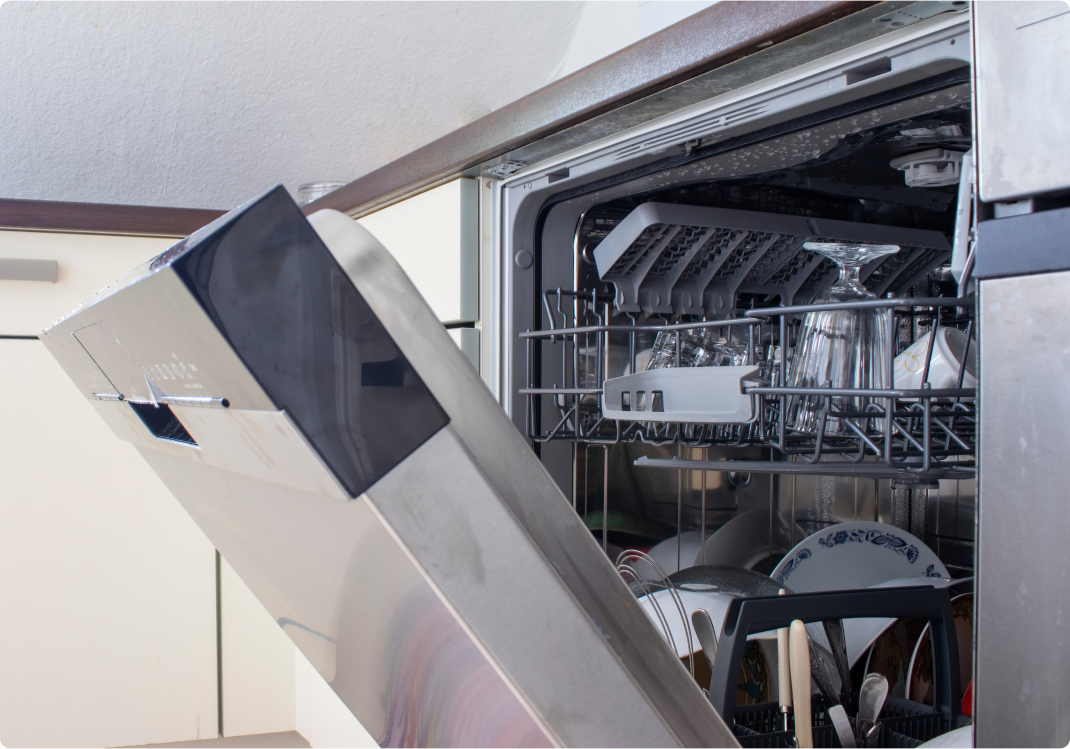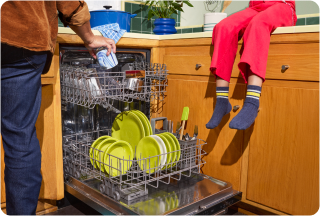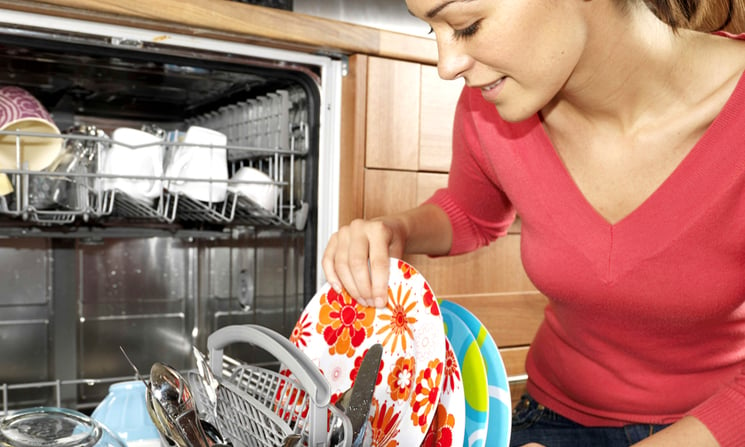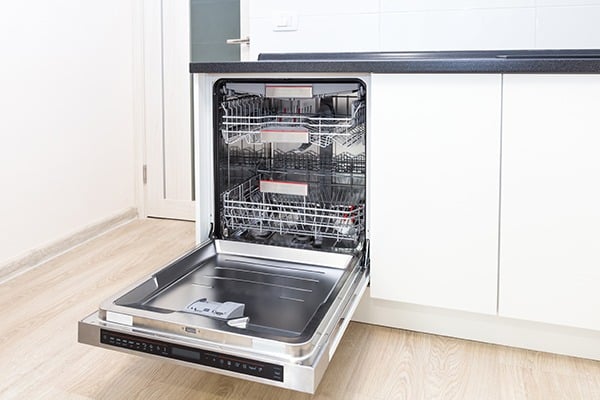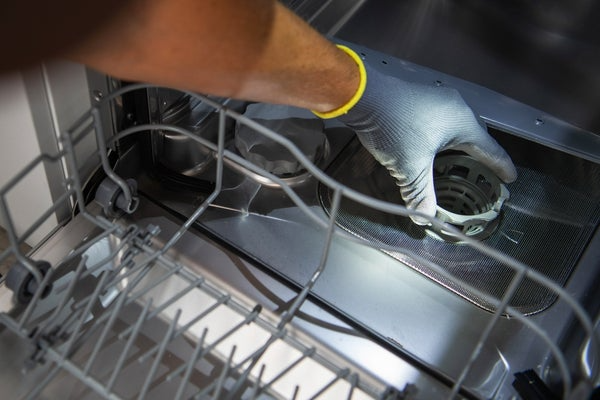Is water usage higher for the dishwasher vs. hand-washing?
It may seem reasonable to hand-wash when you have only a small number of dishes to do, but it’s actually extremely wasteful. Obviously you wouldn’t wash an entire load by hand with an empty dishwasher at your disposal, but if you did, you could use more than seven times the amount of water your dishwasher requires. Using an ENERGY STAR certified dishwasher instead, for example, ends up saving $3,200 in energy and water compared to hand-washing over the lifetime of the appliance.
Contrary to what your mother told you, rinsing each plate before tossing it in the dishwasher really doesn't do much good. The dishwasher simply doesn’t require that sort of preparation, and the water you use to do so is just being wasted. Simply scrape your scraps in the trash and call it good.
How to get the most out of your dishwasher
- Run Only Full Loads: To make the most of your dishwasher’s water and energy usage, wait until it’s fully loaded before running a cycle. A full dishwasher uses the same amount of water as a half-full one, so loading it to capacity is your best bet.
- Use the Eco or Energy-Saving Cycle: Whenever possible, opt for the eco or energy-saving cycle on your dishwasher. These settings are designed to use less water and lower temperatures, and can make a big difference in minimizing your dishwasher’s water usage.
- Avoid Pre-Rinsing – Just Scrape: Save water by skipping the pre-rinse. Modern dishwashers are designed to handle food residue effectively, so simply scrape off excess food before loading your dishes. Let your dishwasher do the heavy lifting.
- Regular Cleaning and Maintenance: Keep your dishwasher in top shape by giving it some routine care— and don’t be afraid to call in a Pro if something feels really wrong!
- Load Dishes Correctly: Properly spacing your dishes makes sure that water can reach all surfaces. Avoid overcrowding, and make sure larger items like pots and pans don’t block the spray arms.
- Choose the Right Detergent: Using a high-quality detergent can play a big role on your journey towards improving dishwasher water consumption. Some detergents are formulated to work better with eco cycles and lower temperatures so that your dishes get clean without the need for extra rinsing or rewashing.
Dubious dishwasher efficiency? Don’t worry, be warranty.
As essential as it is to your day-to-day life, your dishwasher is a part of your home you should feel confident about. With robust home warranty coverage from American Home Shield for your home’s system and appliances, including your dishwasher, from American Home Shield®, you can rest easy knowing that repair help is just a service request away.
